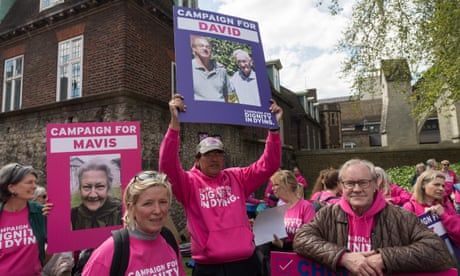
The assisted dying bill could alleviate the suffering of society’s most vulnerable, but MPs’ choice is not an easy one
For me, the assisted dying bill being put before parliament isn’t just government business. It’s personal. Think of me as Schrödinger’s cancer patient: simultaneously living and dying. There’s nothing like the impending approach of the latter to add impetus and urgency to the former. In the two years since diagnosis, my cancer-riddled body has allowed me to engage in a surprising amount of living, from a 100-mile ultra running comeback to a two-month walk from John o’Groats to Land’s End. I’ve found new meaning in life, and campaigning for better NHS treatment has led me to the door of No 10 Downing Street. The prime minister has said that I inspire his government’s work and, even more significantly, my father is proud of me. My sister calls me her hero.
But despite these two life-affirming years, only 10% of people with my disease can expect to survive for five years; ready or not, death is coming for me. Yes, in between chemo cycles and surgeries I have maintained a very good quality of life, and there have been periods in which the cancer, while incurable, almost disappeared. Nonetheless I feel myself becoming weaker, and as I approach my end it’s this that dominates my thoughts. For me, death is not an abstract concept but a reality that looms large in my future.
Nathaniel Dye is a teacher, musician and founder of bowelcancerbucketlist.com
Do you have an opinion on the issues raised in this article? If you would like to submit a response of up to 300 words by email to be considered for publication in our letters section, please click here.
Continue reading...